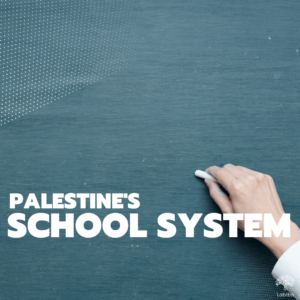This article is directed to demonstrate some parallels between Palestine and Taiwan
Each conflict is unique, has its own reasons and developments, often unpredictable, it is a very vulnerable matter. It needs to be approached as carefully as possible because any decision and any word said can put thousands of lives at risk and suffering. However, it is crucial to rely on past experiences and current situations in order to learn from the mistakes, draw parallels, find patterns, and understand the roots and consequences, so as to be able to build preventive mechanisms and apply them individually in each situation. This article is directed to demonstrate some parallels between Palestine and Taiwan. At first, it might seem that the situation of Taiwan and Palestine are very similar, regarding lack of recognition and isolation from the international community, however, some parallels can be drawn between Israel and Taiwan as well.
“Each conflict is unique but there may be parallels“
It is well known that none of the conflicts are identical and repeat each other in the same way. Said that, peacemakers cannot follow a universal instruction when dealing with conflict situations, since there is no general recipe for peace. This article is directed to demonstrate some parallels between Palestine and Taiwan. But first, we will delve deeper into the issue between Taiwan and China.
Taiwan and China: a sneak peek into the past
The tense relationship between China and Taiwan dates back to 1949 when the Chinese Communist Party declared the founding of the People’s republic of China (PRC) by taking power in the Chinese Mainland from the leading Nationalist party. The defeated Nationalist government had to evacuate the administration of the Republic of China (ROC) and its allies to the island province of Taiwan, contesting the gained power of the Communist Party on the Mainland. However, in 1971 the UN voted for the PRC to replace ROC in the China seat as a permanent member of the UN Security Council. Therefore, states had to recognize the new government and build diplomatic relationships with Mainland China.
One country – two systems
After decades of political disputes, the issue between Taiwan and China seems to be anything but resolved. The “One country – two systems” policy does not find support from the side of Taiwan. And the adoption of the Anti-secession Law in 2005 in Beijing puts a direct threat to the island’s stability and the lives of its people. Besides, it violates International Law by allowing the use of force as means of reunification. At first, it might seem that the situation of Taiwan and Palestine are very similar regarding lack of recognition and isolation from the international community, however, some parallels can be drawn between Israel and Taiwan as well.
Taiwan and Israel: two steadily growing economies
One of the most important matters is the question of recognition. Out of 193 UN states, Israel is recognized by 165 states and is a member of the UN, while 138 recognize Palestine which is currently classified as a “non-member observer state” by the United Nations. However, only 13 states recognize Taiwan and it is not allowed to participate in the UN at all.
“of the UN, 138 states recognize Palestine which is currently classified as a “non-member observer state” . Only 13 states recognize Taiwan but the prosperous economy of the country brought numerous opportunities for economic and cultural cooperation just like Israel. ”
Although Taiwan is completely politically isolated, the prosperous economy of the country brought numerous opportunities for economic and cultural cooperation just like Israel. The global trade of both states is growing annually.
The role of the International Community
Moreover, both Israel and Taiwan are vibrant democracies with a free economy and fair elections where citizens can enjoy multiple opportunities in different spheres and Human Rights. In the case of Palestine, the international community took responsibility for Palestinian state-building providing funding for developing infrastructure and functioning government, however, it failed. Partially, the mistake lies in the inability of the external actors to recognize the state and balance the power asymmetry between conflicting parties so that the negotiations could continue between equal states.
Regarding the assistance of the international community, both Taiwan and Israel are highly supported by the US (politically and militarily wise). And if Taiwan cannot fully rely on that help, since the US will keep moving carefully when it comes to China as an opponent, there is no such barrier with the US’s aid for Israel.
“the US will keep moving carefully when it comes to China as an opponent, there is no such barrier with the US’s aid for Israel”
Obviously, economically and politically speaking, Israel’s position is more advantageous compared to Palestine and Taiwan. Nevertheless, it is also quite vulnerable since the state risks getting isolated on the global stage with the growing solidarity movement for the Palestinian people. Therefore, it is important to keep in mind that when fighting for peace it is necessary to help people in a more vulnerable situation but not at the expense of others.




